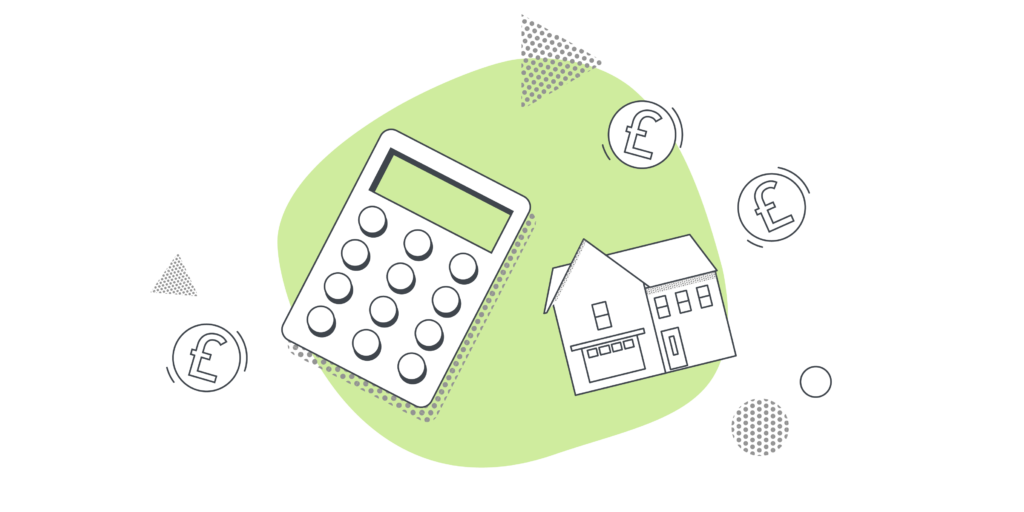
Buying your first home is a big deal. It can fill you with a mixture of both nerves and excitement. From getting together a deposit to investigating the different types of mortgages, there’s a lot to think about. And that’s before you’ve even considered where you might like to live.

1. Save up a deposit
Deposits for a home usually start at as little as 5% and can go up to 20%...Most of us have to buy our first home with the help of a mortgage – a loan that generally runs for 25 years. At the moment, most lenders will offer up to four-and-a-half times your salary for a mortgage. Any shortfall between your mortgage and the price of the place you want to buy will have to be made up by you.
Which is why you need a deposit.
For a first-time buyer, the minimum deposit is usually 5% of the property value. If you can save up a larger deposit, you’ll be able to apply for mortgage deals that have a lower interest rate.
If you’re finding it hard to save up a deposit, one option to consider is a Lifetime ISA (LISA). Available to anyone aged between 18 and 39, you can save up to £4,000 a year towards your first home and the state will add a bonus of up to £1,000 a year on top.

2. Work out what repayments you can afford
As a first-time buyer, the most important question you can ask yourself is: ‘how much can I realistically afford to borrow?’
It’s a good idea to put together a budget including all the other costs of buying a property – like conveyancing, surveys, insurance and Stamp Duty. You can find out more about first-time buyers and Stamp Duty here.
When you’re trying to work out how much you could afford to pay in terms of monthly mortgage repayments, remember you’ll still have to cover everyday costs like, energy bills, travel, council tax and food.
3. Explore schemes offering help for first-time buyers
The good news is that there’s much-needed help for first-time buyers out there – if you know where to look. Probably the highest profile of these is the Government-backed First Homes scheme, which means first-time buyers can get a discount off the price of their home.
But this isn’t the only option available. You can discover more about other offers, such as Deposit Unlock and Deposit Boost here.
4. Find a mortgage
The mortgage market can be a confusing place full of options – fixed-rate, variable, repayment, interest-only … the list goes on.
So what’s the best way for first-time buyers to get a mortgage? When it comes to finding one that suits your circumstances, comparison sites such as Compare The Market, MoneySavingExpert, MoneySupermarket and Which? are all useful starting points. You may also want to consider getting expert help from a regulated mortgage adviser.
It’s also worth bearing in mind that you can improve your chances of getting a mortgage deal by having a good credit score. You can boost yours by:
- Getting on the electoral roll
- Closing credit cards you no longer use
- Not missing any debt repayments

5. Get an Agreement in Principle (AIP)
A mortgage Agreement in Principle (AIP) or Decision in Principle (DIP) is exactly what it sounds like – confirmation from a lender that they would, in principle, be willing to lend you a certain amount of money.
For first-time buyers in particular, it’s really useful to have one, as it:
- Proves you can afford to buy a property
- Gives you a good idea of which homes are within your budget
- Means you’ll be taken more seriously by sellers and estate agents
Getting an AIP is usually a pretty quick process. Your potential lender will carry out a credit check and assess other financial information. Everything can be done online and you’ll normally get a decision within 24 hours.

6. Work out where you want to live
It’s a cliché but ‘location, location, location’ still rings true. When trying to work out the best area for you, there are of many factors to consider like: transportation, shops, schools, restaurants, green spaces, crime levels and more.
If you’ve found somewhere you like, it’s often worth just walking around the area to get a better feel of the place. Sometimes you can even discover hidden gems and more affordable homes on the edge of sought-after neighbourhoods.
Property websites like Rightmove or Zoopla, as well as local estate agents, will give you a good idea of house prices. Just remember that the figures you see will be asking prices. If you want more reliable information, the Land Registry will show you how much homes in the area have recently sold for.

7. Start viewing properties
Viewing property after property can get you into a bit of a spin. Just be prepared for the long haul, don’t rush into a purchase, and never settle for something you’re not really happy with.
Looking at places online is a good way to pinpoint homes you like the look of, but there’s still no substitute for visiting in person. And there are some useful questions you might consider asking while you’re looking around:
- How long has the property been on the market?
- How old is it?
- Has it been renovated recently?
- Has there been a large insurance claim in the past five years?
- What’s the council tax?
- What’s the ownership – leasehold, freehold or part-freehold?
- If it’s leasehold – how long is the lease?
- Are there any service charges?
- Is there parking available?
Last but not least, have a good nose around. Pay close attention to things like the windows (new-build UPVC windows keep the heat in better), signs of damp on the walls or ceilings, ventilation and the state of any drains and guttering.

8. Think outside the box
Reaching that first rung of the property ladder can be a stretch, so you might need to get creative.
Some people are buying with friends or family members. There are also shared equity schemes in which you buy a percentage of a property and a commercial partner like a housing association owns the rest.
9. Know the jargon
Feel like you’re drowning in a sea of confusing words and phrases? Here’s a breakdown of some of the most common:
Conveyancing – legal work carried out by your solicitor such as negotiating the contract, registering your property and transferring funds.
Contract – the legal agreement between buyer and seller.
Exchange – the moment when signed contracts are formally exchanged between the buyer’s and seller’s solicitors. At this point you will usually be expected to pay your deposit.
Freehold – outright ownership of an entire property.
Leasehold – a contract that allows someone to occupy/own a property for a fixed period of time. Lease agreements are usually over 99 years in length.
Survey – a detailed inspection of a property’s condition.
Searches – arranged by your solicitor to find out if a property is affected by any issues, such as being in a conservation area.
Title Deed – a legal document that proves you have legal ownership of a property.
Chain – created when multiple transactions need to happen at the same time for each sale and purchase to happen. As a first-time buyer you won’t need to sell in order to move, which makes you more attractive to sellers.
Completion – the finalising of the sale when all monies are paid and you have the legal right to take possession of your new home.
10. More help for first-time buyers
Buying your first home is a rite of passage. Yes, it can be complex, but being given the keys to your very own place is a moment you’re unlikely to forget.
Having practical information to help you on your way is always useful and you can find out even more on our website.
Check out Your Guide to Home Buying
Barratt Homes is here to help build your future with a wide range of houses available to suit everyone’s needs. So if you’re looking for a good place to begin the search for your first home, start here.
And don't forget our Low Deposit offers to help make moving more affordable.



